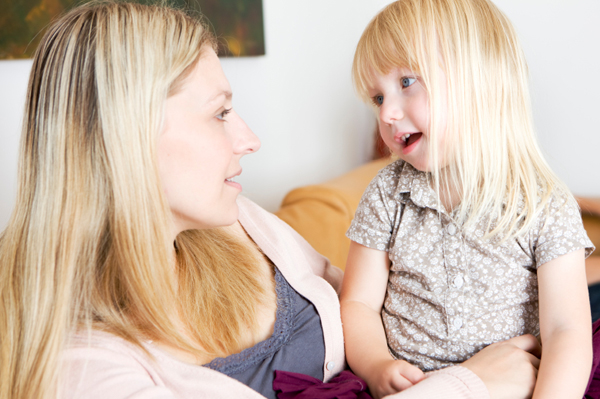Only child on purpose
By the time my daughter was 3 years old, she and I’d been to every playgroup and Mommy and Me class around, so she had to notice her family was smaller than most -- but she never said a word. Then, when she was about five, she asked the question: "Mommy, how come you have brothers and a sister and I don't?"
I'd prepared for this moment, read articles about parenting only children and bought her a storybook, but I already felt my answer, "You were the perfect amount for us honey,” I told her. “Big families are nice and so are little ones." Smiling, she seemed satisfied, and except for a couple times over the next few years, she never asked again.
But what do you say if you wanted more children?
Honest conversations about families
Carolyn White, editor in chief of Only Child magazine and author of The Seven Common Sins of Parenting an Only Child, said that when her daughter was four and asked about siblings, White told her the truth -- she wanted another baby but couldn’t have one, and from there the dialogue flowed.
“We talked about different kinds of families: families with two dads, two moms, one mom and one child, one dad and one child, etc. In the process, my daughter came to understand that our family size was right for us,” she said.
Read about mowing down only child myths >>
White kept the conversations age appropriate and over time, they happened naturally. “Children often need to have ideas repeated several times to fully grasp all of the complexities,” she explains. Moreover, she was always honest. “Children feel much safer when they are spoken to honestly and adults don’t waver about important issues.”
Years later, when she told her daughter she was disappointed she couldn’t give her a sibling, her child replied, “’Oh, mom. I just wanted a sister because Amanda had one. It was the same as if she had a Cabbage Patch doll that I wanted.' End of story. Time and patience often take care of things in their own way,“ suggests White.
Age appropriate answers for kids
Dr. Stuart Jeanne Bramhall, a child and adolescent psychiatrist, recommends giving answers according to your child's age. "It's quite unwise to disclose to a child under twelve that parents are having health, financial or marital problems," she says. “Young children aren't developmentally mature enough to handle such disclosures, which are likely to cause substantial insecurity, anxiety and worry."
Read tips for parenting the only child >>
However, with kids over twelve, you can offer more information about why you didn't have more children, but always leave out reasons that relate to marital problems.
Every family is special
Julie Simens author of Emotional Resilience and the Expat Child, works with families who relocate all over the world, helping kids and parents adjust to their global lifestyle. Simens offers an interesting perspective for parents of only children. "Most parents jump into the ‘uniqueness’ first, but I like to paint a broad picture,” she says.
Simens suggests helping children verbalize, based on their age and experience, that lots of families have unique qualities. "I like to take the focus off of 'you are special' to 'we are special,'" she says. “Build on the emotional vocabulary of your child. This will help her explain exactly how she is feeling. If he or she is feeling lonely, it would be better to know if the feeling was isolated, lonely, left out or ignored."
Read more on having an only child
Being an only child doesn’t harm social skills
3 tips for helping your child establish strong interpersonal relationships
How to help your child cultivate friendships
--
Source: http://www.sheknows.com/parenting/articles/848393/how-to-talk-to-your-only-child-if-she-asks-about-siblings
~
Manage subscription | Powered by rssforward.com

{ 0 comments... read them below or add one }
Post a Comment